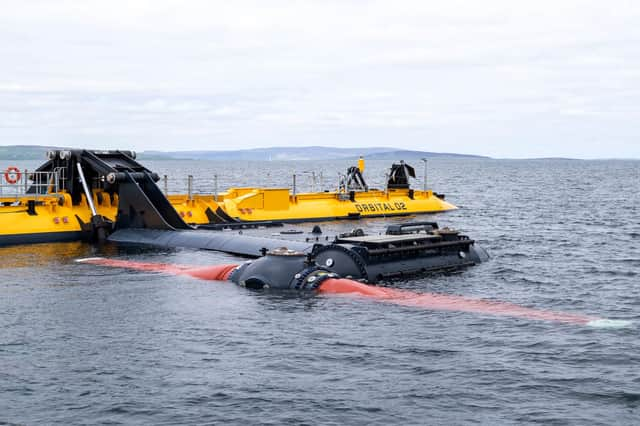Maintaining cross-border research funding is critical – Brian Wilson


He repeated the commitment that the value of new UK levelling-up funds to Scotland would at least equate to the value of previous EU structural funds.
And he stuck to his guns over funding via local authorities while eager to work with the Scottish government.
Advertisement
Hide AdAdvertisement
Hide AdSo far, so good. However, there are big gaps in replacements for EU funding streams – more, I suspect, through inadvertence than design. Some important elements have simply fallen through the cracks.
One example raised by the chairman, Kenneth Gibson MSP, was the European Marine Energy Centre’s wave-and-tidal testing centre in Orkney, a genuine world leader. Half of EMEC’s revenue comes through an EU funding channel called Interreg which promotes transfers of knowledge and best practice among the regions of Europe.
Mr Gove offered to look into EMEC’s particular problem but he should also examine the wider importance of Interreg, not in order to replace it but to find a way to remain within it. Interreg is about co-operation across borders and is not something the UK can do on its own.
Interreg has grown steadily since 1990 and there are hundreds of projects with British partners – universities, local authorities, research bodies. It has a budget of 10 billion euros over five years from which British partners will now be excluded.
In the context of Irish cross-border activity, UK participation in Interreg has been quietly extended. Mr Gove should ensure this now happens more widely – it is simply a good thing to be part of, Brexit or no Brexit.
A message from the Editor:
Thank you for reading this article. We're more reliant on your support than ever as the shift in consumer habits brought about by coronavirus impacts our advertisers.
If you haven't already, please consider supporting our trusted, fact-checked journalism by taking out a digital subscription.
Comments
Want to join the conversation? Please or to comment on this article.
